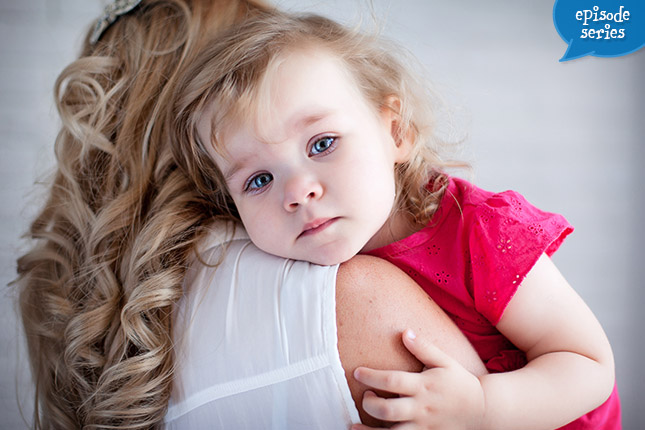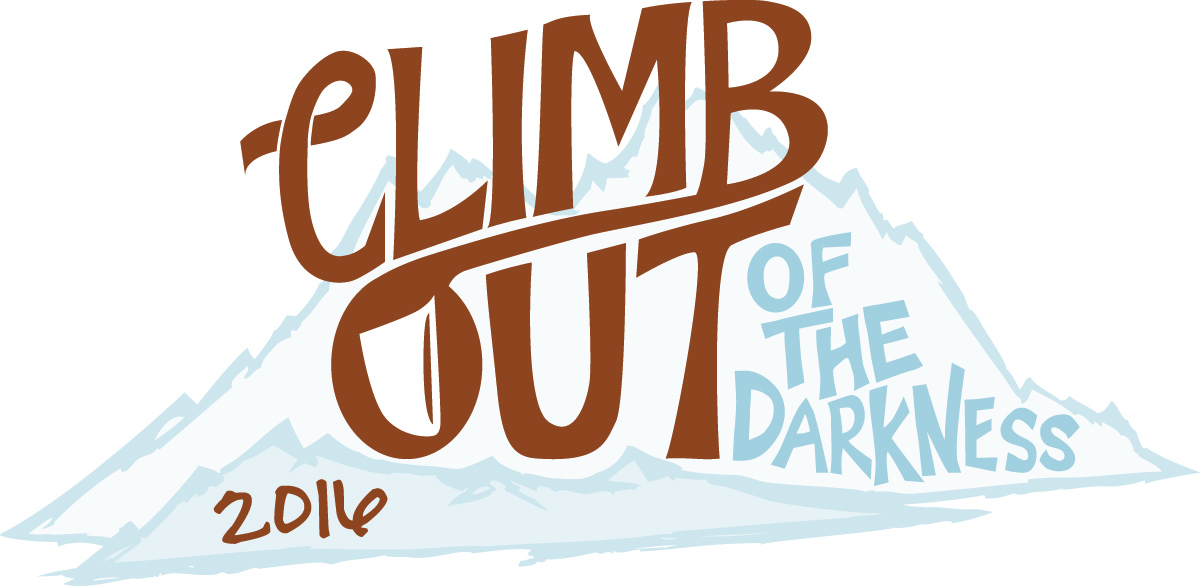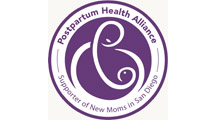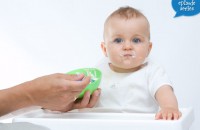Newbies
Delayed Postpartum Depression: Toddler Transition
Please be advised, this transcription was performed from a company independent of New Mommy Media, LLC. As such, translation was required which may alter the accuracy of the transcription.
[Theme Music]
KRISTEN STRATTON: You are fast approaching your baby’s first birthday. In the past month you have noticed a dramatic change in her independency and wonder what lies ahead now that you are entering the world of a toddler. How can this transition go as smoothly as possible for both of you? This is Newbies.
[Intro/Theme Music]
KRISTEN STRATTON: Welcome to Newbies! Newbies is you online on to go support group getting new moms through their babies first year. I am your host Kristen Stratton, Certified Birth Doula, Postpartum Doula and Owner of In-Due Season Doula Services. If you haven’t already, be sure to visit our website at www.newmommymedia.com and subscribe to our weekly newsletter. You can also subscribe through iTunes, so that you can automatically get new episodes when they are released. Here is Sunny with details on how you can get involved with Newbies.
SUNNY GAULT: Ok, so you guys may have heard us talk on the show before about our apps. And we love our apps because we are busy moms, and we are on the go, and sometimes it’s helpful to have things right with you, on your phone. I know a lot of us use apps for different parenting things, or maybe perhaps to entertain our kids at certain points. So I just want to encourage you to download our apps if you haven’t already. It’s a great resource.
And then also, if you happen to be on iTunes, a great way for you guys to help us out is to leave an iTunes review, because this is how people find out about our show. So a huge portion of our audience comes directly from iTunes. And the best way to discover new content on iTunes is through basically recommendations that iTunes gives you. So it is like hey, if you like this content, you will also like this content. And it rates that according to ratings and reviews.
So, if you like Newbies, even if, you know, you have some suggestions for the show, I am all ears, it’s totally fine. But go to the ratings and reviews section. You can do that through, if you guys have an iPhone, and you have a like a general…I think it’s a podcast app on iTunes. If you haven’t downloaded the Newbies app, or the New Mommy Media app, and you are just listening that way, you can find Newbies on iTunes through that. Just go to the rating and reviews section on the Newbies page.
It’s the exact same thing if you happen to be listening through the app on your computer, if you are on iTunes again go to the Newbies page. And there’s direct links to this on our website if you want to access it that way, if you just want to search iTunes. But again, it just takes a couple minutes. You can leave a star-rating. You can also leave actual comments. Both are really helpful. I think I am actually going to start reading some reviews.
I think that would be kind of fun, to read some of the reviews on the show in the future. So I am thinking about that. So that’s another great way! So hey, if you want to leave a review, you review may actually make it on the show. So, if you have a couple minutes to do that, it helps our show tremendously!
KRISTEN STRATTON: Let’s meet the mammas joining our conversation today. Tell us a little bit about yourself, your family and your experience with today’s topic. Go ahead, Bianca?
BIANCA JAMOTTE: Hi! I am Bianca Jamotte. I am the creator of the web-series Real Mommy Confessions. You can find us everywhere online. We have our Facebook page which is Real Mommy Confessions, the series. And what we do is we get confessions from moms from all over the worlds and we turn their confessions into 2min comedy videos or episodes. It’s been really fun. We’ve met so many wonderful moms, and it is kind of our way of, you know, banding together, and saying hey, we are a little crazy and having children is insane, but, you know, at least we are in it together.
So that’s what I do. I have two toddlers…I don’t know if they are even technically toddlers anymore. My daughter is four, and my son is three. And today I am here talking about delayed postpartum depression. I think having my two children back to back kind of kept me in my mom-hormone-zone for, you know, the whole time that I was pregnant, and then breastfeeding, and then pregnant right away again, and then I breastfed my son until he was 13months. And about two months later I crashed and burned.
I just noticed I was irritable all the time, and I felt awful. And I had dealt with depression a bit in my early twenties, so I kind of knew that feeling. And it was scary, and it was interesting, and I’ve been medicated for it since. And so yeah, I am here to talk about that.
KRISTEN STRATTON: Well, thank you so much for being here today!
[Theme Music]
SUNNY GAULT: Ok, so before we dive into our interview today, I want to tell you about an important event coming up this month. It’s called Climb Out of the Darkness®and it is the World’s largest event raising awareness for maternal mental illnesses such as delayed postpartum depression like we are talking about today. Julie Thorpe-Lopez is one of co-organizers for the San Diego portion of this worldwide event and she is joining us now. Hi, Julie! Thanks for being with us!
JULIE THORPE-LOPEZ: Hi, Sunny! Thank you so much for having me!
SUNNY GAULT: Alright Julie, tell us a little bit more about this even and the overall goal?
JULIE THORPE-LOPEZ: Absolutely! The event is put on by postpartum progress incorporated. It’s a non-profit organization focused on improving awareness of pare-natal and postpartum mental illness and proving peer support for families who are suffering with them. So Climb Out of the Darkness® is our annual awareness raising event, we are in our forth year, and the goal is to help alleviate the stigma associated with postpartum and pare-natal mental illness. It’s a Climb to symbolize the climb out of the darkness that a lot of families face when there are struggling with postpartum mental illness.
It takes place on the longest or close to the longest day of the year, every year, and that’s to help shine the most light on prenatal mood and anxiety disorders. So like you said the climb takes place all over the World, on the same day, and our local San Diego event will be taking place at Kate Sessions Park down in PB. It’s June 18th, from 9am to noon, and we will be meeting at 9 o’clock, and do our climb together with our participants. It will be an easy climb so kids and dogs are welcome to come and participate.
SUNNY GAULT: That’s awesome! Alright, so we mentioned there’s a bunch of different locations for this. So mammas when you are not listening to this and you are like: I’m not in San Diego, it’s ok, we are going to include a link to the site that shows you all the different locations. In fact, Julie and I were just going through and looking at some of these. And again, it’s worldwide. So we are not just talking about within the United States, although there are tons of locations in the US, but we are noticing some, Julie, in Canada, where else? We found some other ones?
JULIE THORPE-LOPEZ: We have a climb in Scotland. We have lots of climbs in Canada. We have a climb in Brazil. And we have a clime in Dubai this year. We are in almost all 50 states and if you happen to click on that climb map at www.postpartumprogress.org and you don’t see a climb in your city, by all means, organize one! You can contact us at www.postpartumprogree.org. We definitely want to make sure that there’s a climb in every city.
SUNNY GAULT: That’s awesome! Alright, so tell us, Julie, a little bit about your involvement. And I know this is a topic that's really important to you, so tell us a little bit more about that?
JULIE THORPE-LOPEZ: Sure! Well, I am the mother of a three year old little boy and I personally suffered with postpartum depression and was not diagnosed until 14months after he was born. I had some pretty intense anxiety after his birth and was actually evaluated in the first week after he was born for postpartum mood issues. And I was told that everything looked normal. So I kind of just went about trying to figure out how to be a new mom and didn’t know very much about postpartum mood issues or disorders.
So I didn’t really know that what I was experiencing probably was at least a little bit of postpartum depression and anxiety. I was in a pretty bad car accident five months after my son was born and that really intensified the anxiety I was having in my role as a mom. But I was so afraid of the stigma attached to postpartum mood disorders that the little that I did know about it was pretty much all bad. So I really hide a lot of my feelings and a lot of the symptoms I was having. I was actually… I was seeing a wonderful psychologist at the time for what I was experiencing after the car accident and I was even afraid to talk to my psychologist about the stuff that I was feeling related to what was finally diagnosed as postpartum depression 14months later.
After I was diagnosed and started to get treatment and recover really pretty quickly, I thought wow I really want to more about this. I really didn’t know any other moms who had suffered what I had gone through and I felt really alone. So I started doing some research and I found Postpartum Progress and I learned that these diseases are really common. One in seven moms will get a perinatal mood disorder, which are almost a million moms in the United States alone annually.
And only 15% of those women actually seek help. So that means you know that we have potentially half a million moms in the United States alone that are struggling with something that is totally treatable. So I wanted to get more involved and raising awareness, and helping alleviate that stigma. So I got connected with Postpartum Progress and this time I am helping organize the climb with my co-leader Jessica.
SUNNY GAULT: I love it! And that’s why these events are so important! To get the message out there that mammas, you are not alone and it’s something that so many women go through. And so that’s why we have events like this. This is why we do episodes like the one we are doing today. Because it’s just…it’s so important! So Julie, for our listeners out there that are like: hey, I really want to get involved, I know we mentioned a little earlier that you can go to the website. Explain the process a little bit more if they want to join?
JULIE THORPE-LOPEZ: Absolutely! So if you are in San Diego, you can visit our San Diego Facebook page. And there you can find out more about our event and find out how to register. That’s: www.facebook.com/climboutsandiego2016 .If you want to find a climb in your city, you want to go to: www.postpartumprogress.org and we have the handy-dandy map that we were talking about earlier. You can find your city, click on the city, and you will be routed to a registration page for your city. It’s through the “crowd rise” website which is our platform for both registration and fundraising. Registration is required, and fundraising is optional.
So that’s basically how you would find the climb in your city. If you have any questions about the San Diego climb, or any of the other climbs, nation-wide, or in another country, you can always contact us through either the Facebook page or through the www.postpartumprogress.org website contact link.
SUNNY GAULT: And again, yeah, if there is not an event in you city, you are more than welcome to create one! It’s not too late! I asked Julie, she said: no, it’s not too late. So mamas, you can still get involved if you want to. And obviously a great cause! Something we fully support! Julie, thanks so much for being with us today. We appreciate your time! And thank you for co-organizing this event!
JULIE THORPE-LOPEZ: Thank you!
[Theme Music]
KRISTEN STRATTON: Today we are continuing our series on delayed postpartum depression by discussing the transition to a toddler. Our expert today is Doctor Ruth Newton, Founder and CEO of the Newton centre For Affect Regulation. Thank you for joining us today, doctor Newton, and welcome to the show.
DOCTOR RUTH NEWTON: Well, thank you for having me!
KRISTEN STRATTON: Doctor Newton, can you please explain what is affect regulation?
DOCTOR RUTH NEWTON: Well, affect regulation is actually a neurobiological term that describes the inner world of emotional regulation. For instance, if our children are emotional or if we are emotional we look a certain way on the outside but what’s going in the brain is connections, regulatory centers, and the deep limbic system and we use affect to describe the whole thing. So inside and out means affect regulation.
KRISTEN STRATTON: Well, anyone who has raised a toddler definitely knows there’s a lot going on. Well, that’s why we are here today, isn’t it? So with that, what major development milestones do we normally associate with toddlers at the 12month mark?
DOCTOR RUTH NEWTON: Well, this is a great question because there are actually two development stages in the first year of life. The first one is the tale end of infants which is 12months to 18months. And then the second, which is what the official toddler stage is, starts at 18months and goes up to actually 3. The major task of infants is the attachment itself. If it’s secure enough and the child feels secure with the parents and is starting to explore, we are good to go.
By the time they get to 18months though, there is so much more brain power on board, they are so much more able to understand what others intentions are, it’s the beginning of self-development, they can know refer to themselves as I and me. So there is quite a bit of difference in these two developmental stages. We consider the task of the toddler stage is to develop agency, that’s the word we use, which means as the toddler feels secure enough to act on the world to pursuit what they want. Of course we have to shape that more than often, but they are pursuing what they want. So that’s what those two stages are all about.
KRISTEN STRATTON: A typically developing toddler would very likely be mobile, either walking or preparing to walk. So what does this new independence do for them behaviorally?
DOCTOR RUTH NEWTON: Well, when walking infants are starting to be upright, the big behavioral change in them is elation, and you can’t help but notice that. If you’ve been to any airport you will hear some toddler giggling and laughing, and some parent is lumbering behind going: I am going to get you! This is the age where there is a lot of excitement about the new task of being able to leave the parent and explore, which is typical and normal, and we want that. But that doesn’t mean that they don’t need to come back for a hug or reassurance. So you start to see the natural movement of development away from the parent and then back for security, away to explore, back for security. And you actually see this rhythm all throughout life.
KRISTEN STRATTON: So parents, do you remember when your baby turned one and seeing them grow into their own person? Bianca?
BIANCA JAMOTTE: Oh, yeah, absolutely! Especially my daughter! My son is a bit of a mama’s boy, so he is three now and he is still…his comfort thing is putting his finger in my bellybutton. So…And that’s how he falls asleep. So he’s always been a bit more attached. But my daughter, at the second she…She started walking early, she started talking early, she was just ready to go. And like, doctor Newton said, she would come back and check in, and always…I mean, she still does, she’s four and she’ll make sure she can see and get my ok, you are fine. But yeah, it was really wonderful! I loved watching that! I loved watching her react to people and venture out on her own. I was already pregnant with my second, so it was kind of nice.
KRISTEN STRATTON: You know, Bianca, I can completely relate to that because I have three kids in three and a half years.
BIANCA JAMOTTE: Oh my Gosh!
KRISTEN STRATTON: I know! Everyone’s going “Oh!”
BIANCA JAMOTTE: Yeah, my heart just stopped!
KRISTEN STRATTON: Yeah, that’s the military life! They leave, they come back, and then you are pregnant, and they leave again. All the military wives will be like: yes, yup!
BIANCA JAMOTTE: Yeah, it’s funny, because I am married to a firefighter and the second…After our first date my roommate looked at me and he goes: you are going to marry him and then you are going to breed, because that’s what that kind of a guy does.
KRISTEN STRATTON: Yeah, I know, right. I mean…But my daughter was kind of similar to yours. When she was just one she figured out she can move, she was like: bye, see ya.
DOCTOR RUTH NEWTON: The thing about them being upright and can move out to explore, is that they’ll visually reference you. And that's when you can tell your attachment is really secure. They just have to look at you. And you look like it’s ok, then off they go.
BIANCA JAMOTTE: I love that look!
DOCTOR RUTH NEWTON: I’ll bet you do!
BIANCA JAMOTTE: Yeah, I thought all these milestones would make me sad, because oh my baby is leaving, but I loved seeing that…Ok, I feel like I am screwing it up all the time, but at least some of the things like…I mean, ok, she knows I am here, she is checking in and she feels confident enough to go and explore, and I really love that look! I love getting it now, even though she is much older and it’s usually, you know, she is about to jump off something very high.
KRISTEN STRATTON: But what are you going to do, right?
BIANCA JAMOTTE: Exactly!
KRISTEN STRATTON: How fast can you run, mom?
BIANCA JAMOTTE: Exactly! I am so glad we’ve all been there!
KRISTEN STRATTON: Mama ninjas! We are all ninjas!
BIANCA JAMOTTE: That’s exactly the word I use! Like I have ninja skills now that I became a mom. I am super-fast and I hear everything.
KRISTEN STRATTON: So doctor Newton, with their new mobility, their growing sense of self, how does this change the relationship between the child and the mother or the primary caretaker?
DOCTOR RUTH NEWTON: Well, I think as Bianca said, it can be a certain freedom and excitement to see your child kind of move away and explore, and have all these different skills. And I think that as everything is going as typical development goes, and mom doesn’t feel like super-depressed, it does very well and there’s an excitement about having your child have this level of skill. What I have seen and certainly have been my experience is if moms a very depressed the toddler period can be tough, because you have to move with them.
It’s not like if you don’t feel like getting up, you can kind of stay down with a toddler, you kind of have to go with them. And so I’ve seen that as being hard for moms who are depressed. But moms who aren’t depressed…It is a lot of work and Bianca, if you had two, kind of in the same stage, it sounds like that would be a lot of work. It is a lot of work. Toddlers move. They move a lot. And not only that, they have tantrums, you got to teach them to share and they hate share. Their first words are usually no and mine, so there you go.
BIANCA JAMOTTE: And very loudly!
DOCTOR RUTH NEWTON: Yeah, very loudly, yeah!
BIANCA JAMOTTE: The volume it’s interesting because… So I started feeling depressed shortly after my I weaned son Cassie. He was around fifteen months. And so the volume between the older toddler and the younger toddler, that’s kind of how I realized I was starting to feel depressed. Because the sound was so loud on my head. It was one of those things when you…I love these little people! I love them more than anything on the Planet, but they would both shriek at the same time and it felt so huge in my brain and made me just so uncomfortable and I was getting irritable because of it. And it was so strange. It was just like physically I was reacting to their shrieking and the noise level. And that was actually a huge sign to me.
DOCTOR RUTH NEWTON: It is. Their screaming can drive everyone a little bit over their edge. But if you are depressed, it really is quite difficult. But I am so happy that you recognized that.
KRISTEN STRATTON: And now, Doctor Newton, I am really glad that Bianca brought up the point the way she did, cause that perfectly transitions into the next question I wanted to ask you which: how does this affect the mother’s sense of self as the small infant becomes a toddler?
DOCTOR RUTH NEWTON: Well, I think if the things are going well, my experience is mothers feel more excited about their child, the child has more skills and going out with the child the mother is feeling great. There’s one mom whose baby went into toddlerhood and she was sawer so she make herself this polka-dot outfit and makes a polka-dot outfit for her little girl, and out they go. And there’s that sense of: wow, we are at a different stage, there’s more skills… But if the mom is depressed, that can really be kind of tough and what I have experienced is mom start to feel awful about themselves-not good enough, I am not doing good enough. And there is a lot of guilt, and kind of beating on themselves. And so to work with moms that are depressed and help them kind of recover to their sense of self is really important.
KRISTEN STRATTON: When we come back we will continue our discussion about toddler transitions. We’ll be right back.
[Theme Music]
KRISTEN STRATTON: Welcome back to the show! We are continuing our discussion with Doctor Ruth Newton. Doctor Newton, how can we help our children in their social realization during transition, especially when they are interacting with older siblings?
DOCTOR RUTH NEWTON: Well, this again in the two stages…In the late infancy stage 12-18months, these are very young children, and they kind of need to know how we do things in our world, who does our family do things. You will find that that young infant learns very quickly who the people in the home are, who is at everyone’s position is, and they feel a part of it.
However, sometimes, especially if there’s a large age rage, and you mentioned an older sibling, sometimes the young child is not really caught into anyone else having mom’s attention. For instance, one family I am thinking of, has a fourteen year old and a new fourteen month old, and we had to work with the fourteen year old to kind of interact with the child from a little bit of a distance, use a lot of gestures, so that the child felt like she was understood by the older child. So you have to work with these. It can be difficult, but not impossible.
KRISTEN STRATTON: And what are the largest barriers for toddlers which cause tantrums?
DOCTOR RUTH NEWTON: They want everything they want now.
KRISTEN STRATTON: I love when I ask these questions and I am like: I already know the answer! I’ve lived this.
DOCTOR RUTH NEWTON: It’s hard. They see somebody playing with a toy: they want it, or it’s their toy, and nobody should have it. They don’t have the emotional regulation yet. They will, but we have to help scuffle that regulation. So this is where we really come in strong with socialization skills. I know you want that truck, but your brother is playing with it. Should we do a five minute? You want to control the timer.
We start to scuffled these interactions to help toddlers share. Because if they decide that it’s not on their level, it’s not fair, it is theirs, then they can’t do anything but kind of go into a full-out tantrum. And these can be very dramatic. Toddlers are very dramatic. They have great range of feelings. And they can actually have a tantrum one minute, and then the next minute, they can come out and play with you, and love you as if nothing happened. That’s the nature of the range of toddler feelings!
KRISTEN STRATTON: Oh, yeah! And especially between the siblings too!
DOCTOR RUTH NEWTON: Especially the siblings!
KRISTEN STRATTON: One minute they are screaming, the next minute they are fine.
BIANCA JAMOTTE: And like from the deep felt love to the: that’s my truck! I am going to throw my truck at you!
KRISTEN STRATTON: But doctor Newton, we know how overwhelming this can be, so how can a mom manage her own stress from the tantrums and frustrations with a toddler?
DOCTOR RUTH NEWTON: You know, as with every stage, including pregnancy, at every stage, we have to have moms being quite aware of self-care. It is like what do you need to do in order to keep you own or our own regulation? Because raising kids is tough stuff! And if you have multiple kids, it’s really tough. Like I’m always mom: what do you do for self-care? And some will look at me as if I, you know, as if I asked a foreign question.
They are not thinking about self-care. And the other question is: do you have adult time? You know, mothers are not just mothers. They are also adult women. And we require to have some adult time. So it’s a balance. And I think when the moms do have the self-care that they need, it’s easier to go through all this drama that this particular… The toddler stage really has a lot of drama in it. It kind of can, you know, straighten out a little bit once they get into pre-school, but is still can get dramatic for a while.
BIANCA JAMOTTE: What’s interesting about that is that I feel the trench shifting a bit, but one other reason I started my series was because I was feeling like I had no outlet for anything grownup and that I was struggling alone, and that I really had nothing that was my own. And I had been doing what seemed like everyone else was doing, which was: look at this beautiful picture of my kid, oh everything’s fine, oh, everything’s happy, everything’s great! And not having any time to myself or any self-care what so ever! But that was the trend on the internet.
Like no scream time for your children, don’t say no, attachment everything, co-sleeping. And while I do most of those things, it’s finally now I am seeing the trend shift where people are like: stop, go take a day, have a minute, it’s ok, you not a horrible parent, you are not demolishing everything that you’ve built in the attachment in the first year or two. But for a long time, I feel like mothers were told that, you know, to take time for yourself or to do anything that’s outside of caring for your child, especially if you are stay-at-home mom, because that is your job, that that was unacceptable. I think that was part of the reason I actually started feeling depressed. I was feeling very isolated and very much I wasn’t…I didn’t count anymore.
DOCTOR RUTH NEWTON: Yes, that’s exactly what I experience too. And I do, I agree with you. I think this is starting to change. And from my experience why it’s changing is that we want good attachment and children do need a lot of [inaudible27:22], but you have to keep the mother going. And it’s like the adult time, the adult aspect of every woman, is what I’ve seen is kind of under the rug. And once we start to address that, women start to feel like: oh, wow, you know, I can go out and have coffee with my friend. The child will make it through, really, they will.
BIANCA JAMOTTE: Right! A big one for me also was time with my husband.
DOCTOR RUTH NEWTON: Yes.
BIANCA JAMOTTE:…definitely didn’t think, cause I was aware of making sure that he didn’t feel that everything was about the kid. Because especially with my son, he was very needy, and was always on the breast, and he slept in our bed, cause he wouldn’t sleep any other way, and we needed sleep. It got to a point where I really had to make an effort to, you know, give my husband a hug, or do something to show him that he was still a priority in my life. But at one point I turned to him and I was like: I love seeing you kiss the kids and say I love you to the kids, and snuggle the kids-I need that too!
DOCTOR RUTH NEWTON: Yes, exactly right! Exactly right! We have [inaudible28:31] where we are helping moms and infants, and toddlers, and it’s for the mother. However, the almost the first session we ask the dads to come in, because it changes the dynamic of the family and especially of a depressed mom dads can kind of hear us say "do you ever go out together?" and help them figure out who can babysit while they have a date-night. I think all parents need date-nights together.
You need each other. You need each other and once that is in place, I find that mothers feel so much better. And by the way-the dads do too, because they…I had one man tell me that he "lost his lover" quote, that’s a quote, as soon as they had a child. And I understand that. Children take a lot. And a mother is very primary in that first year. But with dads can join in, and the marriage itself, the relationship between the parents is protected, I think it goes much better.
KRISTEN STRATTON: Doctor Newton, what are some of the ways to structure our days to help our toddlers feel secure and give moms order as well?
DOCTOR RUTH NEWTON: One of the things that absolutely have to happen in this stage is routine. And I can stress it enough. The worst times I have seen for the whole family is when there’s no routine. So a routine means like: ok, we get up at kind of a certain time and we have breakfast, we go on to dinner and we do a reading activity, we have a bath and then we go to bed and there’s a nice bedtime routine. This is in the beginning very difficult for toddlers. But the more this happens, the more it realizes parents of a lot of stress, because once their child is in bed, they have each other, they have adult time. So I can’t stress enough that this is a stage where routine matters. And it matters a lot!
BIANCA JAMOTTE: I think it matters to the toddlers too and not just the mother, but I've definitely seen a difference in my children when they know what’s coming next and it has to be like this. It’s for their comfort as well.
DOCTOR RUTH NEWTON: It’s not only comfort, it does give them comfort, but it’s a part of how parents entrain the child’s emotional regulation. So we are talking about how it’s very important for their own neurobiology and their own future emotional regulation. It’s very important! It’s important for that level, but important for the parents, it’s just healthy.
KRISTEN STRATTON: Thanks so much doctor Newton, and thank you. Bianca for joining us today in our discussion about toddler transition. And for Newbies club members our conversation will continue after the end of the show as doctor Newton will share about her game ideas for stimulating your toddler’s growing brain. For more information about the Newbies club, please visit our website at www.newmommymedia.com.
[Theme Music]
SUNNY GAULT: Alright, so before we wrap up our show, we are going to do a “Baby Oops” segment. And this is where you guys share your funny stories that have happened to you in caring for your baby during that first year. And sometimes we go all the way to pregnancy which is what Jamie has to say. She has a funny moment right after she had her baby, and so this is what she said:
I’ got used to having that shelf…
You know, we are talking about that shelf with your pregnancy belly, you know, like how it creates and you can start eat of it and stuff, it becomes really fun like on 6, 7 and 8 moths, whatever. So she says:
I got used to having that shelf with my pregnancy belly and I would set a small plate, the TV remote, whatever small thing happened, and I was going to hold it on top of my belly when I needed an extra-hand.
And then she had her baby and she says when her baby was a few days old, she did that forgetting that she didn’t have a baby in there anymore. And everything felt straight to the ground. She’s like:
I was so surprised! I actually forgotten I wasn’t pregnant anymore.
And oh my Gosh! That sounds like something I would do! Because you do… Did anyone actually like start to rely on that little shelf?
KRISTEN STRATTON: I still do that sometimes when I try to rest my arms there and I am like oh, wait, that’s a not a baby anymore, that’s just a belly.
BIANCA JAMOTTE: It’s so funny because I am scared that someone is going to ask me if I am pregnant. Because I do that, I hold my belly.
SUNNY GAULT:I do that too tough. When I am like standing in line and sometimes I just hold my belly. And I’m just like why, why I’m doing that. You know, it’s just like the pregnancy equivalent of just standing rocking back and forward when you don’t even have a baby in your arms.
BIANCA JAMOTTE: You see a baby and all of the sudden you feel the rock coming.
SUNNY GAULT: Exactly. Oh, it’s our crazy mommy brains that we have, right? It’s like going back to when we were pregnant or whatever the case might be. So thanks so much Jamie for sending this. And if you guys have funny “Baby Oops” we’d love to hear it. Go to our website at www.newmommymedia.com and you can click on the contact link and submit it through there. Also, if you just happen to be on Facebook, because you know, we usually are on Facebook, that’s what we do as moms, we post pictures of our cute kids and how wonderful our life, is right? And so if you are on Facebook doing that go ahead and go over to our Newbies page and you can just post your funny story there and we’ll put it on a feature show.
[Theme Music]
KRISTEN STRATTON: That wraps up our show for today. We appreciate you listening to Newbies.
Don’t forget to check out our sister shows:
• Preggie Pals for expecting parents
• The Boob Group for moms who breastfeed their babies
• Parent Savers for moms and dads with toddlers and
• Twin Talks for parents with multiples.
Thank for listening to Newbies. Your go-to source for new moms and new babies.
[Disclaimer]
This has been a New Mommy Media production. The information and material contained in this episode are presented for educational purposes only. Statements and opinions expressed in this episode are not necessarily those of New Mommy Media and should not be considered facts. While such information and materials are believed to be accurate, it is not intended to replace or substitute for professional, medical advice or care and should not be used for diagnosing or treating health care problem or disease or prescribing any medications. If you have questions or concerns regarding your physical or mental health or the health of your baby, please seek assistance from a qualified health care provider.
SUNNY GAULT: How would you like to have your own show on the New Mommy Media network? We are expanding our line-up and looking for great content. If you are a business or an organization interested in learning more about our co-branded podcasts, visit our website at www.newmommymedia.com.
[00:34:57]
[End of Audio]












